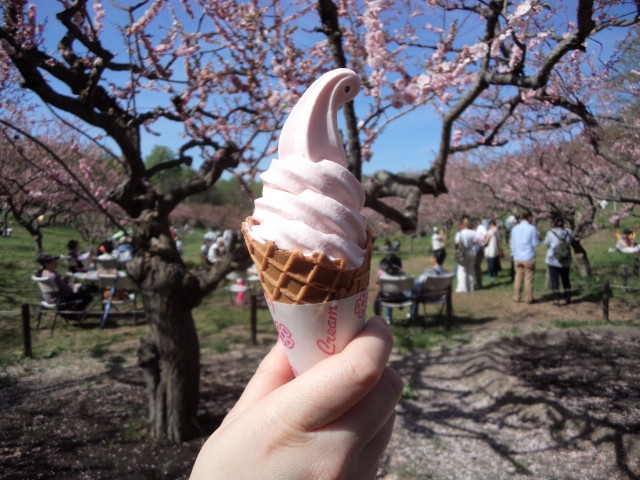Japanese consumers' grade based on brand trust and quality, and to compete, a strategy is a key. Marketing in the modern world can take place in social media platforms, through magazines, and even across streets in Japan — marketing is everywhere, same with the opportunity to work in this field too.
Table of Contents
- Marketing in the Modern World
- Common marketing strategies in Japan
- Things to know about getting a marketing job in Japan
- Summary
 Are you having any issues with job-hunting in Japan?
Are you having any issues with job-hunting in Japan?
Marketing in the Modern World
What is marketing?
Marketing is how business owners present their product to their consumers. It is how they connect and make sure that their product is highlighted and well presented to invite and encourage consumers to purchase the product or service. Nowadays, consumers will want to make sure of the product or service they’d want to avail is worth every penny. It should be noted that marketing is essential to the growth and success of a business.
Traditional and Modern Marketing in Japan
In the history of traditional marketing in Japan, their principle of selling a product was that excellent craftsmanship would mean it would sell. Marketing was not deemed as important as they believed that people will buy the product as long as it is good. As time passed, technology has been developed and the patterns of consumers changed overtime.
With the help of modern day technology it gave businesses a lot of new platforms to present what they offer. The new marketing strategies of Japan include digital transformation, digital marketing, e-commerce and of course the use of the internet that makes them even more competitive. In these platforms it is convenient and easy to make the product information available for the consumers. Marketing has evolved in a way that it does not only focus on the product itself but in providing what the consumer needs.
The Japanese took advantage of this by mastering the skill of advertising a good quality product, combining both the traditional and modern way of selling a product..
Writer's Pick
Common marketing strategies in Japan

Japan is one of the leading creative marketers in the world as they provide fresh and interesting ideas that will catch consumer’s attention. They do this by incorporating their marketing with something that is authentic in their culture. In instances, a lot of companies embed stories behind the product they are marketing and this not only catches the attention of the consumers but it makes them interested and even engaged with it hence making the marketing more successful.
Collaborations
With collaborations, the idea of Japanese marketers was to provide the consumers something that can be used while also having a familiar character or person attached to the final product.
One example in this area is the sneakers collaboration in 2018 between Adidas and Dragon Ball Z. Adidas has already built its name and is considered as one of the trusted footwear brands and Dragon Ball Z anime series has a lot of fans not only in Japan hence getting a lot of attention from the consumers.
Another example is how Japanese products and services will often have a famous celebrity in the commercial. By having a celebrity promote, their fans will often utilize whatever they are advertising as it is seen as trustworthy if the celebrity themself is using said product or service.
Thus, as a marketer, one may be tasked with coming up with the most unique and eye-catching collaborations.
Seasonal and Limited products and services

One would also have to become familiar with the terms 季節限定 (seasonal edition) and 期間限定 (available for a limited time period only). This means being familiar with Japan’s seasons and what makes consumers tick. The abundance of cherry-blossom themed items and foods for a brief time in spring, for example, is one of the most noticeable ones as stores and shops heavily feature the pale pink flowers in designs and flavors.
A great example of utilizing both 季節限定 and 期間限定 is how the marketing team in Starbucks in Japan managed to incorporate their product with Japan’s culture while localizing its brand and taste. They were able to bring out the flavors of Japan into their drinks that not only the locals love but as well as the tourists and other visitors. While the most popular are permanent menu additions, many are only available for a month, sometimes even less, so people often scramble to try the new flavors. They also produced tumblers and merchandise that is designed particularly with Japan’s icons like the cherry blossoms, as well as region-limited editions. It showcased the strength of creativity and ability to highlight what the locality has.
Collectables and Location-specific items
One would have to have a high knowledge of what’s marketable in terms of a specific location - whether it be famous places or regional tastes.
For example, Kitkat is known for having a lot of different flavors and is limited in Japan. This actual strategy makes consumers wonder how other flavors taste, like a matcha flavored Kitkat, compared to the original chocolate flavor which is available around the world. There are also region-specific products featuring certain characters.
Japanese marketers use this strategy to attract tourists both domestically and internationally who have an interest traveling to find region-limited versions of beloved products.. This does not help promote the product itself but traveling the country as well.
Things to know about getting a marketing job in Japan

While the aforementioned strategies are part of what makes marketing interesting, especially in Japan, that is not the only scope of the job. As a person entering the marketing field in Japan, you must be able to do a multitude of tasks, which includes project-planning, coordinating with clients, setting up events, negotiating advertising periods and fees, cold calling to potential new clients, marketing research, doing advertisement campaigns on-site, and so on.
Minimum Qualifications and Desired Qualifications
When applying for any job it is a must to possess these following qualifications to qualify, these are the basic skills that is needed for marketing:
-
Good communication skills; must be proficient in English and Japanese
-
Can work positively with others, as all projects are team efforts
-
Calm under pressure
-
Able to reach goals and deadlines efficiently and on time
It is also important for a company to hire employees that has a background and experience with marketing so it could be both easy for the employer and employee to develop and reach the company’s goal.
-
Experienced with working on sales proposal and negotiating with clients
-
Experienced with digital marketing and public relations
-
Effective in creating and planning advertising concepts
-
Experience with engaging on social media and other online marketing platforms to build awareness
Other Information
Since Japan is dedicated in providing excellent product and service it is important to note the following when considering working there:
-
Working overtime and for long hours ---since Japan is dedicated in producing excellent and quality products and services, this may mean spending a lot of time in developing it, especially around deadlines. It is also important to make sure that the company you are applying to treats their employees fairly in terms of overtime expectation and pay especially in this industry.
-
Someone who strongly agrees with the company’s goal and vision ---it is very important that employees uphold company values. Especially when it comes to PR and advertising, you as an employee will be part of being the face of the company to others.
-
A team player - While certain positions require and award individual work, a lot of jobs in Japan mean working together as a team, which means being open to help out in any way possible. This may mean doing things outside the usual scope of your job which may come as a surprise to some.
-
Compensation may differ depending on which company you apply to. A monthly salary can be around ¥ 220,000 to ¥ 400,000, depending on the type of job which ranges from marketing research to actual product design, which can increase even further depending on your qualifications. The average annual salary at an advertising agency, to be more specific, can be ¥ 5,750,000
※ WeXpats Website, “Marketing Jobs” ※ Heikinnenshu, "Breaking down the annual Advertising Agency Salary"
Summary

Marketing is the name, qualification is the game. Marketing jobs in Japan can be described as something that integrates teamwork, skill sets, and proper preparation in order to keep a keen edge on the ever active Japanese markets. It’s important to know what kind of Japanese cultural aspects appeal to the market, which may mean disregarding what seems to be the norm in the rest of the world, but also recognizing the globalization aspect and maintaining that delicate balance. Improving yourself by knowing and having the vital requirements not only increases your chances of getting hired but also may affect your starting compensation. Buff yourself up for the more prepared you are, the better off you will be.



































